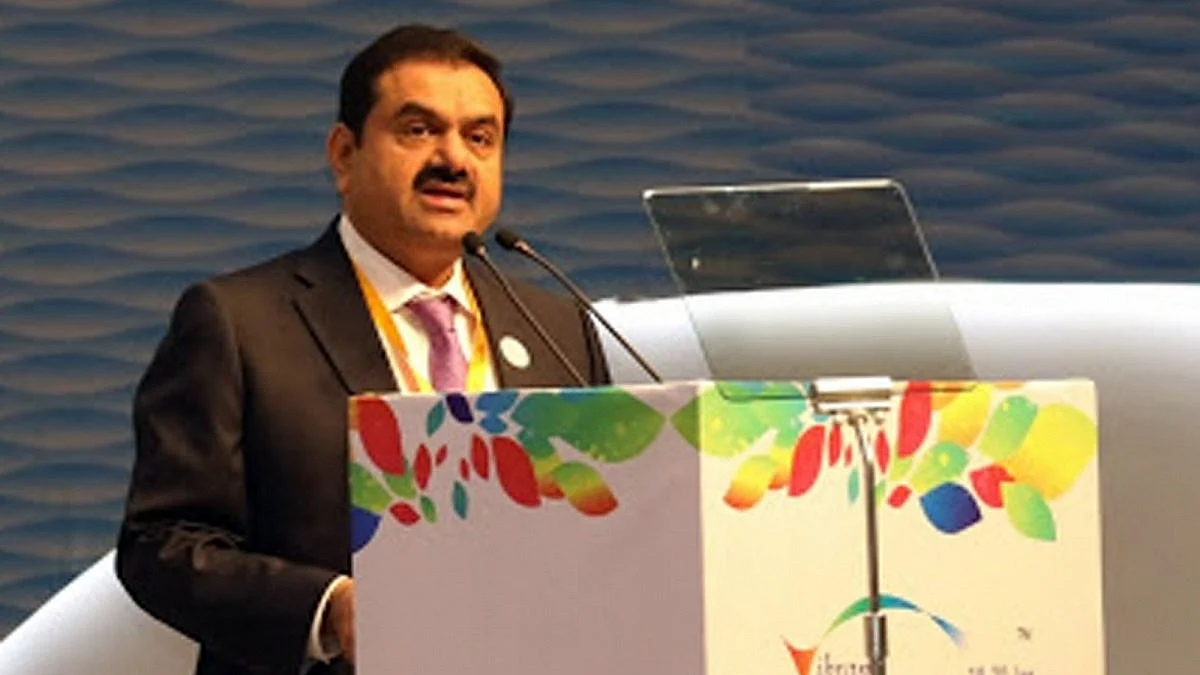Nation
GOI and public sector SECI “co-conspirators” in Adani bribery scam, says EAS Sarma
Former union power secretary and advisor(energy) to the Planning Commission, says a probe needed in India because the union government is a co-conspirator

In separate letters to finance minister Nirmala Sitharaman and Andhra Pradesh chief minister Chandra Babu Naidu, EAS Sarma, former union power secretary, has urged an inquiry in India into the indictment of Gautam Adani in the United States.
Not only did the bribery scheme alleged by the Federal Bureau of Investigation (FBI) unfold in India, he holds, but the union government and a public sector undertaking under the ministry of renewable energy SECI (Solar Energy Corporation of India) are the co-conspirators. The union government, he says, is actually the ring leader, he has said in multiple interviews during the past few days.
He had earlier written directly to the Prime Minister among others, suggesting that SECI’s power purchase agreement with Adani Green to purchase solar power at exorbitant rates for the next 25 years was designed to fleece Indian energy consumers. He had of course received no reply from anyone.
What the FBI has done in the United States, could and should have been done by the Central Bureau of Investigation. What the Securities Exchange Commission of the United States did was doable in India itself by SEBI and what a New York court did by issuing summons and a warrant of arrest, should have been done by an Indian court, Mr Sarma points out.
Published: undefined
He explains that solar energy technology is changing very fast and cost of generating solar energy has been declining steadily; which is why it made no sense for SECI and the Government of India to get into a long-term agreement with Adani Green to purchase power at inflated rates. It was a conspiracy to benefit the corporate body at the cost of Indian consumers, he pointed out.
Solar energy, he adds, can either be generated by consumers themselves with the help of small and decentralised solar panels or by large plants set up by corporate bodies. The latter is capital-intensive, entails high transmission losses and costs the consumers a lot more.
The decentralised model, on the other hand, enables the small plants to be efficient, less costly and also enables consumers to sell the surplus power to the grid and make small profits. He has been advocating this model for a long time but unfortunately all governments in the country are totally pro-corporate and have paid no heed to what he believes is common sense.
Why did SECI agree to purchase power at exorbitant rates from Adani Green in the first place, he asks. It was after SECI failed to persuade the state power distribution companies (discoms) to buy power at inflated rates (their interest is to buy the cheapest power available), that both the union government and the Adani Group got into the act.
He points out that the union power ministry issued an illegal instruction to the states and made it mandatory for them to meet 15 per cent of their energy needs through solar power. This provided the states the justification to buy power at extravagant rates, the burden of which was to be met by the Indian consumers.
Published: undefined
Both SECI and the power ministry worked as brokers for the Adani Green, forcing states to buy solar energy at high prices. Both would have conspired with the knowledge of both the PMO and the finance ministry, believes that former power secretary.
He is not surprised though because earlier the GOI and the coal ministry had got together to create an artificial scarcity of coal in the country and force public sector power utilities to use imported coal—enabling corporate bodies to import coal at inflated rates and make a killing.
The country is being taken for a ride, he says, but he remains optimistic. He still has faith in democracy and the judiciary and a judicial inquiry would sooner or later be forced on the union government, he adds.
The strong words coming from the former power secretary reinforces demands for an inquiry and a discussion in parliament on the issue. The demand has also acquired steam by the Adani Group company failing to follow regulatory requirements and inform SEBI and investors about the investigation in the US, which it was aware of since March, 2023, two months after the Hindenburg report accused the Group of corporate fraud and stock market manipulation.
Published: undefined
Follow us on: Facebook, Twitter, Google News, Instagram
Join our official telegram channel (@nationalherald) and stay updated with the latest headlines
Published: undefined